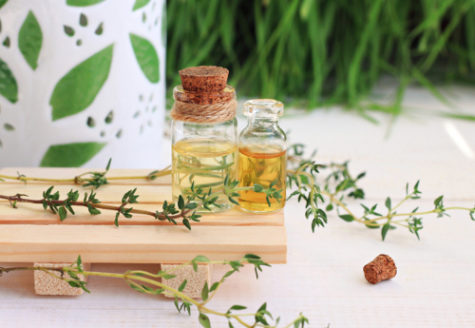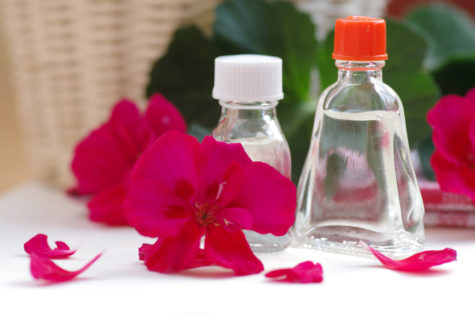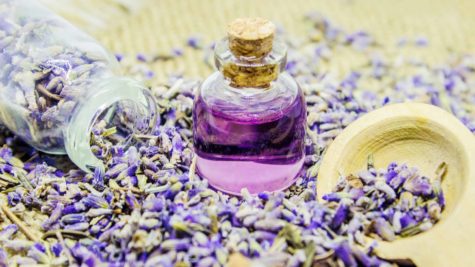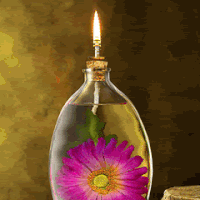Sedative
Best Diffuser Blends for Sleep
- Blend #1
3 drops Lavender
3 drops Cedarwood
- Blend #2
3 drops Bergamot
3 drops Lavender
- Blend #3
3 drops Lavender
3 drops sweet (wild) Orange
- Blend #4
2 drops Lavender
2 drops Vetiver
2 drops Marjoram
- Blend #5
3 drops Roman Chamomile
2 drops Bergamot
2 drops Frankincense
- Blend #6
2 drops Lavender
2 drops Roman Chamomile
2 drops Marjoram
- Blend #7
3 drops Patchouli
2 drops wild (sweet) Orange
2 drops Frankincense
- Blend #8
3 drops Vetiver
3 drops Lavender
2 drops Frankincense
- Blend #9
3 drops Lavender
3 drops Vetiver
- Blend #10
3 drops Patchouli
3 drops sandalwood
Source: One Essential Community
Essential Oils for Sleep
There are a lot of essential oils that help the mind and body relax. Here’s a list of some of the most widely recommended:
- Bergamot: floral citrus aroma is an adaptogen, meaning that it can be both uplifting and calming, depending on what your body needs at the time. Helps calm and reduce anxious feelings.
- Cedarwood: warm, woody scent that is both grounding and calming, promoting a great night’s sleep
- Roman Chamomile: sweet floral aroma is calming and soothing to the mind and body, making it one of the most often used essential oils for sleep
- Frankincense: warm, spicy aroma promotes feelings of peace, relaxation, and satisfaction. A great oil to use to help balance your mood. When combined with other oils, Frankincense often enhances the properties of the other essential oils.
- Lavender: widely used for its calming properties. It eases tension and induces relaxation.
- Marjoram: has a slightly spicy, warm aroma that calms and helps you release emotional stress and trauma
- Wild (Sweet) Orange: sweet citrus scent and, like Bergamot, wild/sweet Orange is also an adaptogen that can be either energizing or calming, depending on what your body needs
- Patchouli: musky scent is grounding and balancing for emotions
- Hawaiian Sandalwood: rich, sweet and woody aroma instills calm and relaxation. It’s soothing scent lessens tension, promotes emotional well-being, and has a meditative-like effect.
- Vetiver: This grass has a rich, exotic aroma that is extremely grounding for emotions.
- Ylang Ylang: a wonderful choice if you are looking to improve the quality of your sleep. It’s very floral and smells a bit fruity.
Source: One Essential Community
Almost Eternal Sleep Blend
This recipe is for a 4 oz. spray bottle, but of course it can be doubled or halved as needed. It’s really simple to make, here is what you will need:
- A 4 oz Spray Bottle.
- 1 tablespoon of vodka or rubbing alcohol
- 10 drops of Lavender essential oil
- 12 drops of Vanilla essential oil
- 7 drops of Chamomile essential oil
- 6 tablespoons of water
Optional: A sprig of Lavender, or a piece of Vanilla bean- small enough to fit into the bottle. This is mainly decorative, and does boost the scent a bit.
Pour the alcohol into the spray bottle and then add the essential oils. Shake well to blend. Add the optional ingredient, and the water. Shake well before using.
Source: Salome Gemme
Thyme Essential Oil
There are many types of thyme, some of which can be used safely in all situations and some which cannot. Thyme oil ranks high on the versatility index of essential oils. Diffused, it boosts wellness, fortifying the lungs and clearing the breath.
Thyme has notable antiviral, antibiotic, antiseptic, and diuretic properties and should be used with great care.
- Application:
Thyme oil should never be used undiluted on the skin. It can be applied topically at very low dilutions of 1% or less or used in a blend as a compress. It may also be used in direct inhalation or diffused. Add to food or soy / rice milk as a dietary supplement or flavoring.
- Fragrant Influence:
It may be beneficial in helping to overcome fatigue and exhaustion after illness.
- Safety Data:
Overuse of Thyme essential oil can stimulate the thyroid gland and lymphatic system. Like many good things, it must be used in moderation. It should never be applied to the skin undiluted and should not be used on children unless it is within the chemotype Thyme linalol. It can be irritating for the mucus membranes and it should not be used by those who are pregnant.
Thyme is a vital component of the Basic Care Kit because of its powerful antiviral properties. When flu is around it is a wonderful oil to have on the diffuser. It assists in the elimination of toxic wastes from the body. It is used in the treatment of a wide range of conditions including whooping cough, warts, rheumatism, neuralgia, fatigue, and acne.
Inhaled, Thyme oil is uplifting and relieves depression, stimulates the respiratory system and relieves the spasm of asthma, is an antiseptic for all sorts of muccoid conditions, kills bacteria in the air, and is used for bronchitis or pneumonia. Thyme oil is also mildly sedating and can be used for insomnia.
Internal dose is three to five drops in honey water three times a day.
It is also extremely useful in antiseptic powders, hair and skin care regimes, and cooking. Just to make it a perfect all-rounder, thyme will discourage all manner of parasites and insects from invading your home.
In Greek, “thymos” means “to perfume”; one of thyme’s many traditional uses was in fumigation. Ancient Egyptians used thyme oil for embalming. In many ancient cultures, it was believed that thyme instilled the virtues of strength, energy, and bravery.
Variations
There are six different chemotypes of T. vulgaris:
- Thymol – low altitude close to the sea
- Carvacrol – low altitude close to the sea
- Linalool – in the sun on exposed slopes
- Geraniol – rare and mixed with linalool at high altitudes
- Thuyan-4-ol – very rare and located between thymol/carvacrol and linalool
- α-terpinyl – in the Eastern Mediterranean
Thyme Linalol is especially recommended to kill bacteria and relieve discomfort. It is non-irritating and gentle, and especially recommended for treating children and the elderly or infirm.
Thyme Thuyanol is quite new. It captures much of the overall strength and stimulating properties of the “regular” essence of Thyme as well as its anti-infectious properties. The difference lies in the much higher content of highly desirable terpene alcohols (non-toxic) and the much lower content of irritant and slightly toxic phenols. This oil is stronglhy germicidal (yet non-irritant) and a very good liver stimulant.
Information collected from various sources
Geranium Essential Oil
Geranium works profoundly on the emotions and is useful in many medical conditions – and smells wonderful while it works so hard. The oil is extracted not from the familiar brightly colored geranium but from the species Pelargonium – Geranium Robert or “lemon plant” – which is very often displayed in abundance in Greek restaurants.
- Application:
Diffuse and apply topically. May be added to food or soy / rice milk as a dietary supplement. Apply where you would use a deodorant.
- Fragrant Influence:
It may help to release negative memories. It may also help ease nervous tension and stress, balance the emotions, lift the spirit, and foster peace, well-being, and hope.
- Safety Data:
If pregnant or under a doctor’s care, consult your physician.
Geranium will make chilblains disappear overnight and brings a radiant glow when used in skin care. This oil is useful in applications for aged, wrinkling or older skin, as well as for healing balms and salves after facial or plastic surgery.
More importantly, it is a vital component in the treatment of endometriosis, is very effective for menopausal problems, diabetes, blood disorders, throat infections, and as a nerve tonic, and works well as a sedative.
When inhaled the scent is antidepressant, uplifting, averts tension, and is stimulating to the psyche.
It is reputed to help in cases of uterine and breast cancer and if nothing else, would certainly help the patient to relax and cope with the pain. Geranium has many applications, from frostbite to infertility, and its antiseptic and astringent properties contribute to its general usefulness. Its delightful floral fragrance makes it a pleasure to use, either on its own or as a contributory oil in blends.
Information collected from various sources
Chamomile Essential Oil
There are several types of chamomile essential oil. German Chamomile is an excellent variety and its beautiful deep dark blue color, due to its high azulene content, comes as a bonus. Another excellent variety, Roman chamomile, is particularly good for the treatment of nervous conditions and insomnia. Beware though of chamomile Maroc (Ormenis multicaulis) which is not a true chamomile and cannot be used as such.
Generalities
Chamomile is that wonderful yellow daily-like flower that is used for everything: cosmetics, fragrance, oil, herbal baths, soothing tea. The root is used for toothache and the entire plant in herbal therapeutics. The whole plant is used from root to flower. The essence is obtained by steam distillation of the flowers. Chamomile smells sweet, resembling fresh golden apples, and this fruity scent has given it the name of Manzanilla in Spanish-speaking countries.
The Egyptians had a great reverence for Chamomile and used it in massage oils to remove aches and pains. Sports-minded people will like using the flowers in a bath for relaxation and to ease aching muscles. This plant was one of the favored strewing herbs of the Middle Ages, to sweeten the air of a room and create a relaxing atmosphere.
The scent is rejuvenative and especially helpful to those of a sensitive nature. Inhaling the herby, aromatic, slightly bitter but always refreshing scent of Chamomile will ease your depression, soothe your irritable nature, lull you into a restful sleep and calm you. Use the oil straight or use it in combinations to relax and soothe a busy household after a trying day.
A busy person might like dabbing a drop or two of Chamomile oil on the forearm, to inhale occasionally during the day , for relaxation and to allay temper. Remember that oil of Chamomile is recommended for use in the diffusor, in a child’s room, for the anesthetic, for the calm that will come, for sweet sleep.
German Chamomile
German chamomile has been highly esteemed for over 3,000 years and has been used for many types of skin conditions and stress related complaints.
- Application:
Diffuse, add to food or water as a dietary supplement, or apply topically on location. Among the gentlest oils used in aromatherapy, the chamomiles are suitable for use on children.
- Fragrant Influence:
Dispels anger, stabilizes emotions, and helps release emotions linked to the past. It may also be used to soothe and clear the mind.
- Safety Data:
If pregnant or under a doctor’s care, consult your physician.
German chamomile is a cleanser of the blood, helps increase liver function and secretion, and supports the pancreas. German chamomile promotes the regeneration of skin and can be used for abscesses, burns, rashes, cuts, dermatitis, teething pains, acne, eczema, chronic gastritis, infected nails, cystitis, inflamed joints, menopausal problems, sores, skin disorders, stress related complaints, toothaches, ulcers and wounds.
Roman Chamomile
Roman chamomile is used extensively in Europe for the skin. For centuries, mothers have used Roman chamomile to calm crying children, ease earaches, reduce fevers, soothe stomachaches and indigestion, and relieve toothaches and teething pain.
- Application:
Diffuse or apply topically on bottom of feet, ankles, wrists or on location. Add to food or soy / rice milk as a dietary supplement. Among the gentlest oils used in aromatherapy. All of the chamomiles are suitable for use on children.
- Fragrant Influence:
Because it is calming and relaxing, it can combat depression, insomnia, and stress. It minimizes anxiety, irritability, and nervousness. It may also dispel anger, stabilize the emotions, and help to release emotions that are linked to the past.
- Safety Data:
If pregnant or under a doctor’s care, consult your physician. Test for skin sensitivity.
Roman chamomile neutralizes allergies and increases the ability of the skin to regenerate. It may help calm and relieve restlessness and tension. Its anti-infectious properties benefit cuts, scrapes, and bruises It is a cleanser of the blood and also helps the liver discharge poisons.
This oil may help with allergies, bruises, cuts, depression, insomnia, muscle tension, nerves (calming and promoting nerve health), restless legs, and skin conditions, such as acne, dermatitis, eczema, rashes, and sensitive skin. It can effectively minimize irritability and nervousness in hyperactive children.
Collected from various sources
Lavender Essential Oil
Lavender oil is a natural antibiotic, antiseptic, antidepressant, sedative, and detoxifier which promotes healing and prevents scarring, and also stimulates the immune system and contributes to the healing process by stimulating the cells of a wound to regenerate more quickly.
- Application:
Diffuse or apply topically. Has a wide range of uses. Apply where you would use a deodorant. Safe for use on small children. May also be added to food or soy/rice mil as a dietary supplement.
- Fragrant Influence:
Calming, relaxing, and balancing, both physically and emotionally.
- Safety Data:
If pregnant or under a doctor’s care, consult physician.
Lavender is capable of many important jobs and is a delight to use. Every home should have a bottle of lavender, if no other oil, because it is so very effective in the treatment of burns and scalds. Lavender is beneficial for cleansing cuts and wounds and is ideal for skin care, since it prevents the build up of excess sebum, a skin oil that bacteria feed on. Lavender has also been clinically evaluated for its relaxing effects.
Although not known specifically as a circulatory stimulant, lavender oil certainly seems to allay the effects of clinical shock and as a mood tonic and antidepressant it helps to deal with the psychological shock of injury.
The French scientist Rene Gatefosse was the first to discover lavender’s ability to promote tissue regeneration and speed wound healing when he severely burned his arm in a laboratory accident. Today, lavender is one of the few essential oils to still be listed in the British Pharmacopoeia.
It also has a multitude of other qualities which make it a truly indispensable oil. This is one of the oils that should be on your number one list – and particularly of use in a first aid kit and for children and pets. It is good for camping because it repels fleas and flying creatures like mosquitoes.
Collected from various sources










